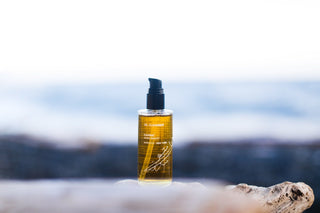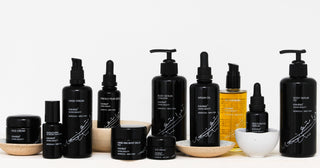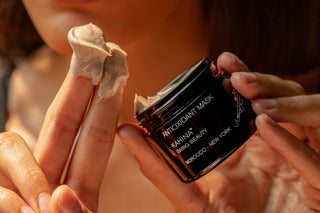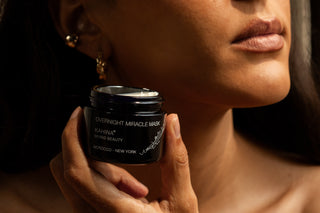In Morocco you can find argan oil sold in a range of locales, from souk beauty stores to roadside stands. But, like many luxury products, counterfeit versions of the oil are sold to tourists, disguised as true oil sourced from cooperatives. This fake oil may contain a fraction of true argan diluted with water, or sometimes even substituted with cheaper types of oil! When my friend went to visit a cooperative, he bought a bottle of argan oil from a stand across the street and low and behold, it was olive oil. If you cannot go directly to the cooperatives in the south yourself to purchase the oil, here are a few tips to ensure that the oil you are buying in Morocco is the real deal:
1) Ask to try a sample. Any vendor who is selling real argan oil will not hesitate to show you its unique non-greasy, moisturizing properties.
2) Smell the oil. If you are familiar with the scent of argan oil, there is no mistaking it. The strength of the nutty scent can vary from cooperative to cooperative, but it is distinctly different from olive oil.
3) Avoid purchasing oil from vendors who also sell spices, kohl, scented waters, soaps, dried herbs, etc. Specialty shops, such as essential oil apothecaries, are a safer bet.
4) The oil should never cost less than 150dH for 30mL, even after haggling. At cooperatives they may give you a special rate, especially when buying in large quantities, but in the souk, anything under 150dH is suspect.
Happy shopping, and remember: just like designer handbags and sunglasses, there is imitation argan oil out there as well.
Kate Seifert, a contributing writer, is an Arabic and Middle East Studies major at Bryn Mawr College and spent her Junior fall abroad in Rabat, Morocco.
Blog
Buying Argan Oil in Morocco: Ensure That You're Getting the Real Deal
More Stories

Kahina Essentials for Summer-Ready Skin
As the weather warms and the days stretch out, your skin starts sending new signals. It’s craving hydration but without the weight. It wants to glow but without the makeup,...

Kahina Named Best US Natural and Organic Brand by Beauty Shortlist
For the seventh time, the Beauty Shortlist Awards have recognized our products among the best, including Best Argan Brand and Best Natural/Organic Brand - USA. These globally respected awards...

This Product Keeps Flying Off the Shelves!
“THE BEST" "This is a hero product! It is gentle and yet so very effective. It has a subtle aroma. It has such fine granules, gentle enough for daily use....

Our Award Winning Moisture Mask Got A Makeover
“I’ve experienced my skin firming up, especially around the cheeks and eye area. I love the list of ingredients. My skin can’t seem to get enough of it. I am...

